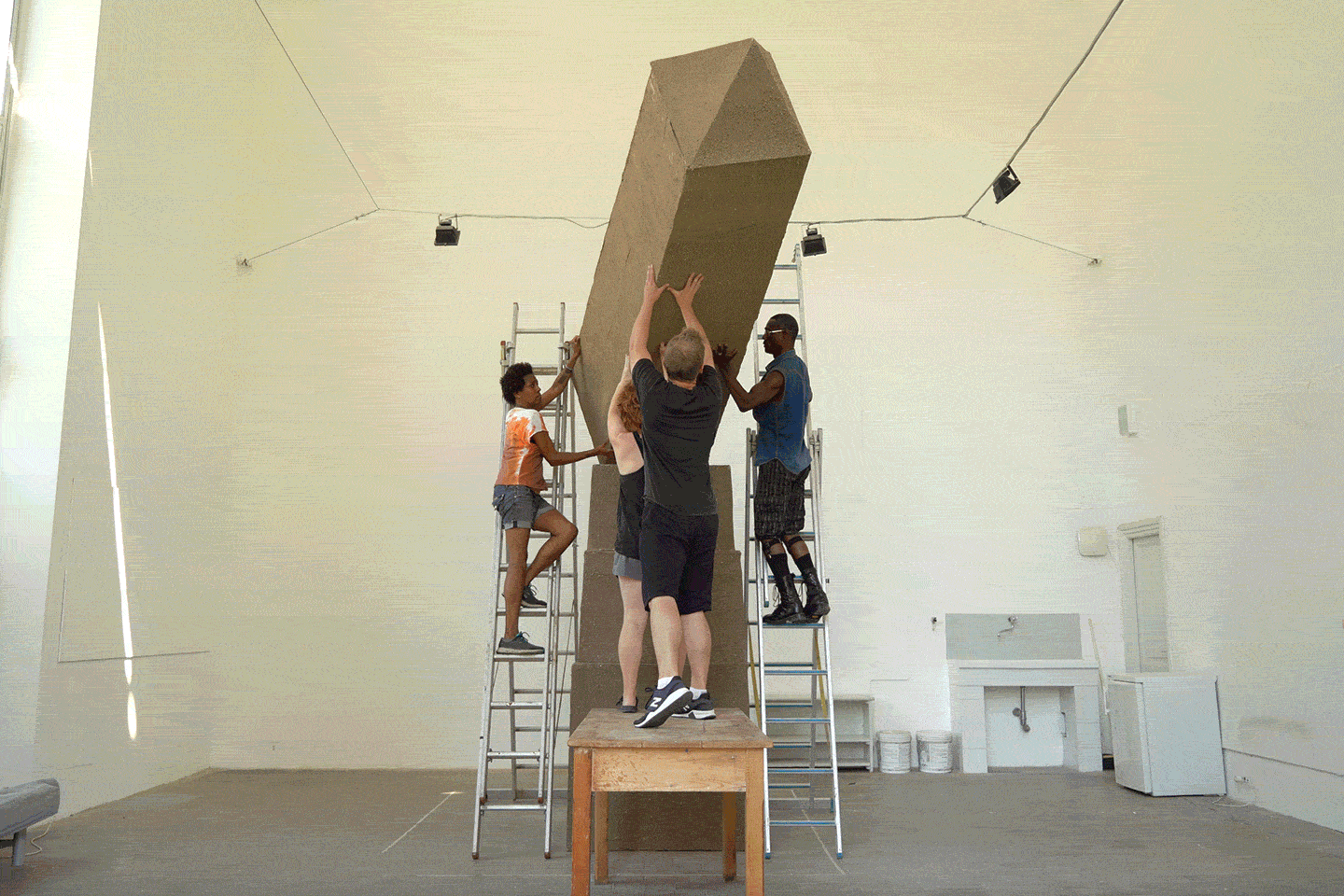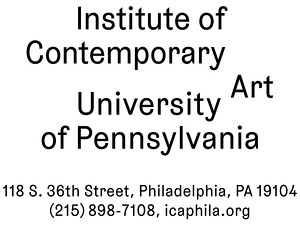January 24–May 10, 2020
118 S.36th Street
Philadelphia, PA 19104
USA
The Institute of Contemporary Art (ICA), University of Pennsylvania presents Karyn Olivier: Everything That’s Alive Moves, a solo exhibition of six large-scale sculptures by Philadelphia-based artist Karyn Olivier. Everything That’s Alive Moves offers the unique opportunity to examine the trajectories of Olivier’s investigation into monuments and their relation to issues of citizenship and individual accountability. The exhibition, on view January 24 through May 10, 2020, builds on several public projects and commissions created by the artist in recent years and offers space to revise, rework, and expand on three key sculptures from her past.
Everything That’s Alive Moves brings together two tactics common to Olivier’s working methods: architectural scale and modest gesture. A fully-functioning carousel for one rider, a car made entirely of repurposed shoes, and a brick wall built using wedged clothing as mortar, are reimagined and constructed on-site at ICA. In returning to these past works, Olivier emphasizes how large-scale need not be a refutation of, or counter to, a desire to be “human-sized.”
Increasingly over the last four years, Karyn Olivier’s thinking has been centered on civic space, driven in part by her planning, building, and writing for several public commissions and memorials. Three new sculptures—including her first video work—reflect Olivier’s 2018–19 year of study at the American Academy in Rome, investigating the city’s ruins, histories, and public works. These sculptures offer a chance to attune ourselves to her care for the accumulation of often-overlooked patterns, and how monuments have embedded in them the perpetual irresolution of overlapping histories.
A 2019 Pew Fellow, Olivier has expanded her interest in the significance of monuments by focusing on local histories. As the artist notes, “Maybe monuments can be instruments that offer us a mirror to give witness to ourselves, our community, our city, or to the world. Or maybe they implore us to be aware of the present moment and allow us to reflect on our shared complicated histories.”
Karyn Olivier (born 1968, Trinidad and Tobago; lives Philadelphia) received her MFA at Cranbrook Academy of Art and her BA at Dartmouth College. In 2018 a permanent addendum was created by Olivier to a controversial Anne Rice O’Hanlon fresco in Lexington, Kentucky, calling attention to the African American and Native American figures within the piece. In 2015 she created a lenticular billboard in Central Park for Creative Time and New York’s Percent for Art Program. In 2019 Olivier was commissioned for the 21st-century Dinah Memorial at Stenton in Philadelphia. Olivier has exhibited at the Gwangju and Busan biennials, the World Festival of Black Arts and Culture (Dakar, Senegal), The Studio Museum in Harlem, The Whitney Museum of Art, MoMA P.S.1, The Museum of Fine Arts Houston, Contemporary Art Museum Houston, The Mattress Factory (Pittsburgh), SculptureCenter (New York), Drexel University, the University of the Arts, and the University of Delaware Museum, among others. She has received numerous awards, including the 2018–19 Nancy B. Negley Rome Prize, a John Simon Guggenheim Memorial Foundation Fellowship, the Joan Mitchell Foundation Award, the New York Foundation for the Arts Award, a Pollock-Krasner Foundation grant, the William H. Johnson Prize, the Louis Comfort Tiffany Foundation Biennial Award, a 2019 PEW Fellowship, a Creative Capital Foundation grant, and a Harpo Foundation grant. Olivier is associate professor of sculpture at Tyler School of Art and Architecture, Philadelphia.
Karyn Olivier: Everything That’s Alive Moves is organized by Anthony Elms, Daniel and Brett Sundheim Chief Curator. The exhibition will be accompanied by a fully illustrated publication, to be released later in 2020.
Support for Karyn Olivier: Everything That’s Alive Moves has been provided by The Andy Warhol Foundation for the Visual Arts, the Edna Wright Andrade Fund of the Philadelphia Foundation, the Henry Moore Foundation, and by a Tyler Dean’s Grant from Temple University. Additional support has been provided by Nancy & Leonard Amoroso, Danielle Mandelbaum Anderman, Cecile & Christopher D’Amelio, Cheri & Steven Friedman, Christina Weiss Lurie, Josephine Magliocco, Lori & John Reinsberg, Patricia & Howard Silverstein, and by Stephanie & David Simon.


